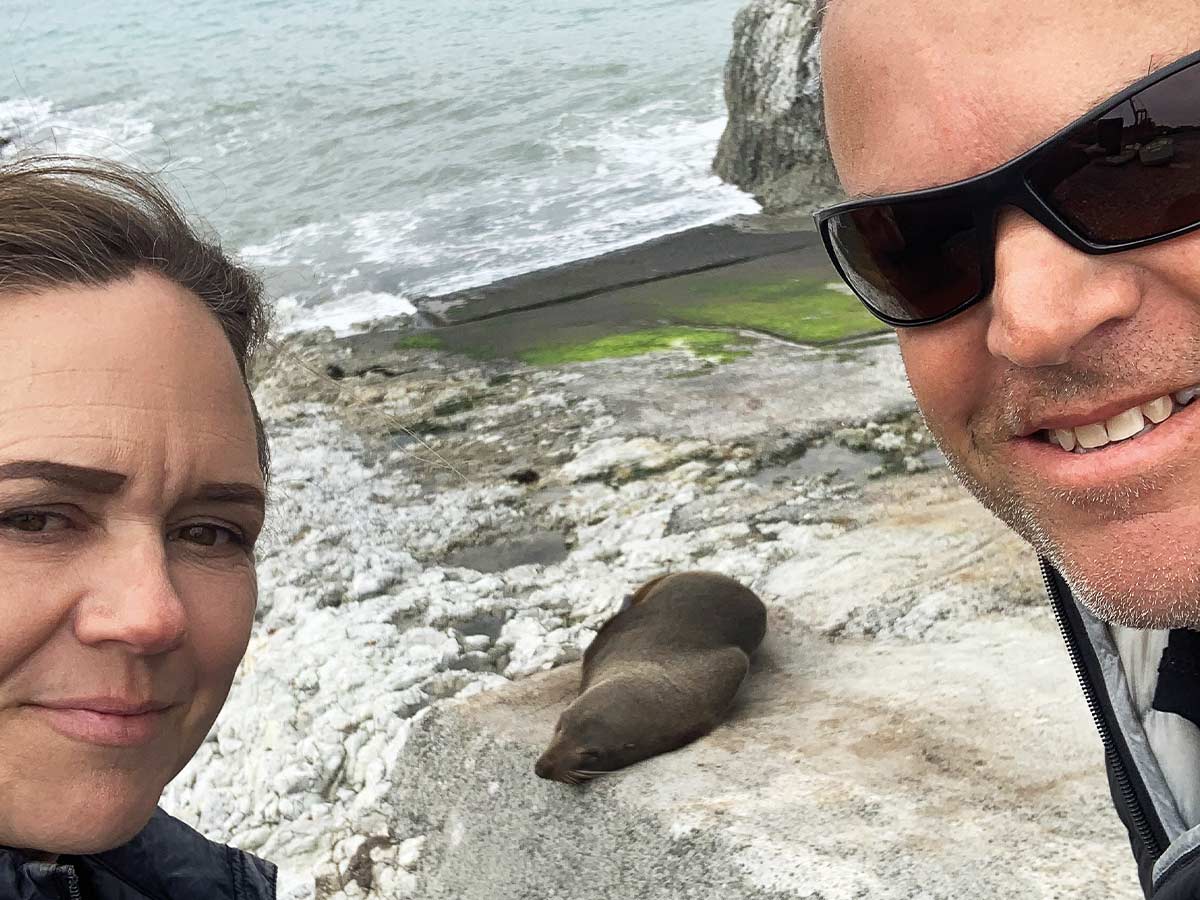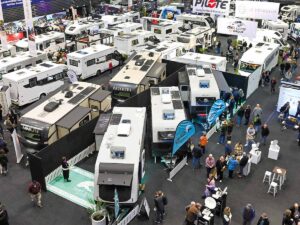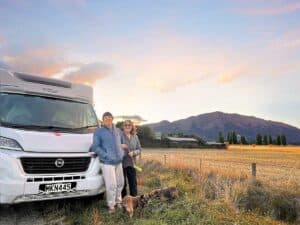An enterprising couple from Ngāruawāhia have discovered that life does not get better by chance, it gets better by change
Ten years ago, Nicole and Vaughan Farmilo built a house on their three-acre section in the Waikato and settled in with their daughter and three dogs. They worked all week in full-time jobs and spent their weekends maintaining the property.
As they reached their mid-40s and their daughter had left home, Nicole and Vaughan started to feel restless.
“We’d already discussed doing the caravan thing when we retired,” says Nicole, “but we seldom got away because we had too many animals that needed daily care. When we managed to find the time to talk about it, we discovered that we were no longer overly happy or content with our lives.
And then, when some unhappy events cut short the lives of some of our friends and colleagues, we realised that if we wanted to change, we had to do it now while we were fit and able. It was a big decision to take to the road but once we had made it, we sold our property, purchased a three-bedroom, lock-and-leave apartment in central Hamilton, ordered a caravan and resigned from our jobs within a year.”
“The first thing was to find a caravan,” says Vaughan.
“We didn’t even know anyone that had owned one, so we were starting from scratch. I searched online, watched countless videos, went to motorhome shows and walked through many caravan yards before we came up with an
idea of what would suit us.”
The couple enjoys walking, hiking, cycling and fishing. Vaughan also likes hunting and Nicole is keen on nature and bird photography, and so they needed a caravan that would work off-grid. Eventually, they settled on a four-berth NextGen Tekapo 700RV, tandem-axle caravan built in Australia and imported by InsideOut RV in Ararimu.
“We wanted a robust backcountry caravan and nobody does this better than the Australians,” says Vaughan. “It is seven metres long, although with the towbar, it is closer to 8.5 metres, and it has a GMV of 3500kg. We liked the layout but the thing that swung the deal was that it could be customised with a huge range of colours and finishes to choose from. The family who owns InsideOut RV answered all our questions, of which there were many!”
Nicole and Vaughan chose their flooring, benchtops, cupboard colours, door handles, interior colours, lounge upholstery and the external colour, which is charcoal grey with red decal highlights. They had a toolbox fitted at the front and chose black for the taps and kitchen sink. A 3000w inverter was added so that when they were off-grid, they could use their coffee machine, the inbuilt washing machine and other 240v appliances. One extra solar panel was fitted to take the total to three 170 watt panels and 510 watts in total. These charge a 240Aah lithium battery. They also carry a small generator to charge the batteries when they have several days of rain. Two freshwater tanks have a combined capacity of 95 litres and they upgraded to an extra 95-litre, grey water tank to double the capacity of the caravan’s standard 95-litre tank.
“We already owned the Holden Colorado ute that we use to pull the caravan,” says Vaughan. “We would have liked to upgrade to a V8 Landcruiser or Dodge Ram but the price was prohibitive.”
Big moves
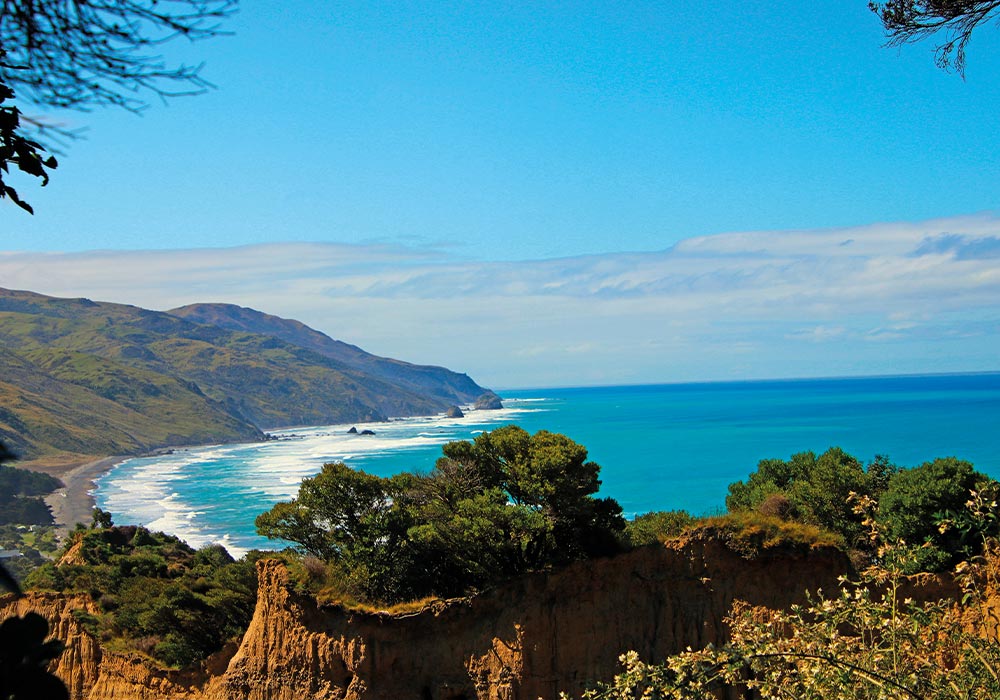
The couple’s next step was the huge decision to sell their house. Even more difficult was rehoming the dogs: their much-loved little Jack Russell-Papillion cross is now living with Nicole’s mother; their border collie was re-homed with a loving woman who owned a lifestyle block, and they were able to place Vaughan’s deer-hunting dog with a man who was also a hunter.
“This part of the process was extremely difficult,” says Nicole. “We did the best we could for them, and it cost us a lot of guilt and anxiety, but we knew we also had to do what was best for us.”
In April 2022, they were ready to depart. Their first sortie was around the Coromandel Peninsula and then six weeks in Northland, followed by some time in Hamilton to tidy up some loose ends. At the beginning of August, Nicole and Vaughan headed south.
“It’s a wonderfully free feeling to be on the road,” says Nicole. “Even though it can be stressful at times it’s in a different way. We spend the days doing what we want, not what we have to do. Every day is different. Often we don’t even know what day it is. It’s wonderful to be exploring our country’s stunning backyard without a time frame.
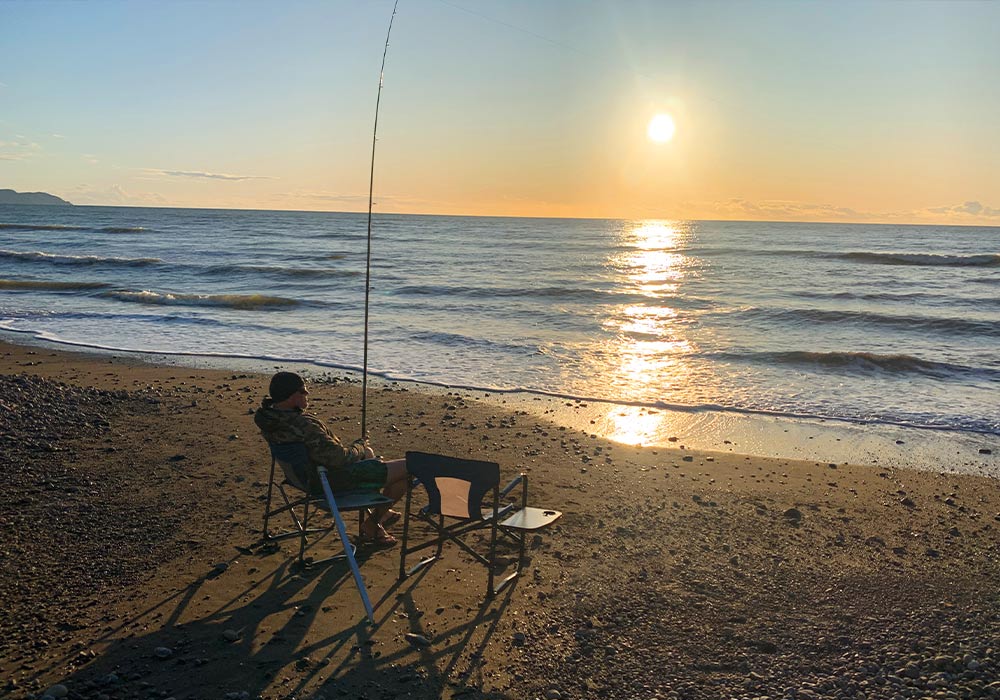
“It has also been a big learning curve. We had to adjust to lost independence. We’d always had time apart from each other doing our own things and now we are together 24/7. A caravanning lifestyle looks effortless and glamorous from the outside, but some chores aren’t overly enjoyable such as emptying the toilet cassette. And there is a lot of stuff that has to be monitored and checked and so many things that can go wrong. Grocery storage is limited, which means we shop smarter and more often and the weight of everything has to be considered. We’re conscious that having no income means we have to budget carefully.
“But, dealing with the challenges is all part of it. Because of the size of the caravan, we have to do our homework before parking or going to a dump station, and some campground entrances can be a very tight squeeze. One time, travelling down a narrow winding back road, we missed the turn-off to a campground. We couldn’t reverse and had no idea how we would get back. Luckily, further down the road, two guys handling stop/go signs allowed us to drive into their truck-stop area where we managed to turn around. The most damaging incident so far was the night an unexpected storm blew in and we’d left the awning up. It filled with a massive amount of water and the weight of it snapped the roller. We now have a lovely new awning thanks to our insurance. Usually, if the weather is inclement, we stay near a town where we can at least have
an outing and don’t have to sit in the caravan all day.”
Favourite spots
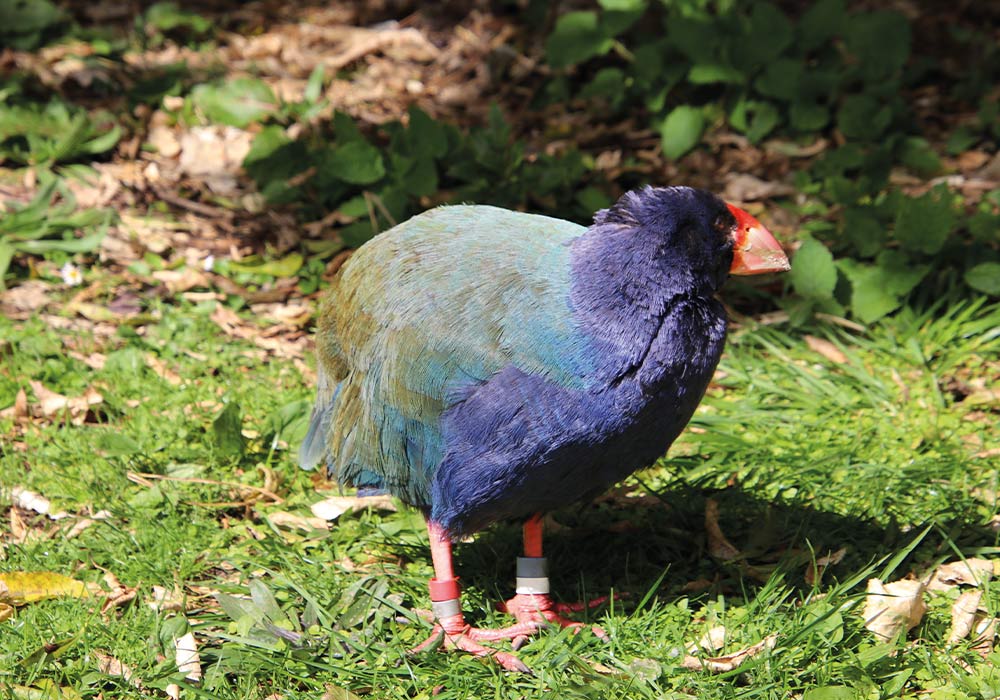
The couple says they have met so many interesting and lovely people along the way, and have stayed at some delightful park-over properties where generous landowners allow them to stay for minimal cost. And they’ve come across some fascinating wildlife such as the tiny, endangered Hector’s dolphins they saw feeding in the shallows when they were parked up in a park-over property at Conway Flat just south of Kaikōura. In two places in Northland, they heard kiwi calling at night, once at Puriri Bay on the Whangaruru Peninsula and in the Trounson Kauri Park DOC campground at Donnellys Crossing, which is renowned for kiwi sightings.
“I’m also interested in some of the abandoned buildings around the country, such as old houses slowly degrading in the middle of paddocks,” says Nicole. “These, and other old buildings, along with visiting museums, are helping us discover our country’s history, which neither of us had paid much attention to before.”
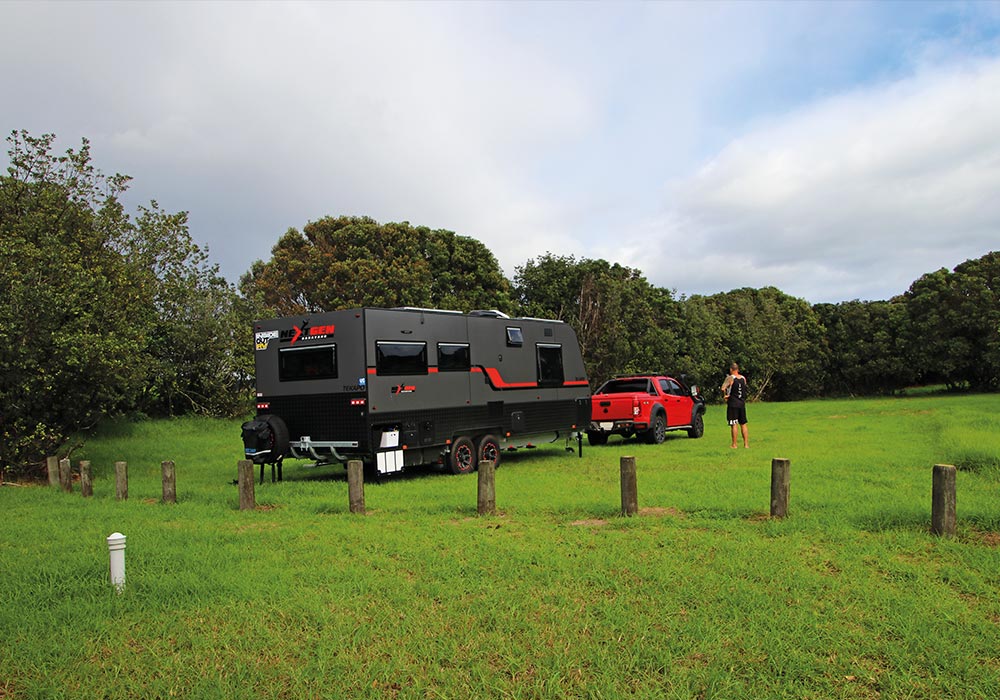
Nicole and Vaughn mostly stay in NZMCA parks, park-over properties or DOC campgrounds and prefer to stay at least three nights in one place because packing up and then setting up the caravan takes time. They cite the DOC camps at Matai and Puriri Bays, and the NZMCA campgrounds in Napier and Wellington, as some of their favourites so far.
“At this early stage, I believe we have absolutely done the right thing,” says Nicole. “Everyone we meet tells us that it’s a great time of life to be on the road. Many others on the road are older and without exception, they say they wish they had done it sooner. Maybe we will be forced to settle again one day if grandchildren come along or our parents need us as they age. Financially, it’s not a great investment but for health, well-being and life experience, it is absolutely the best thing for us right now. I can’t imagine being on my deathbed and saying: ‘Man, I wish we hadn’t spent that time travelling and had stayed working in the office and slogging away on our property’.”

